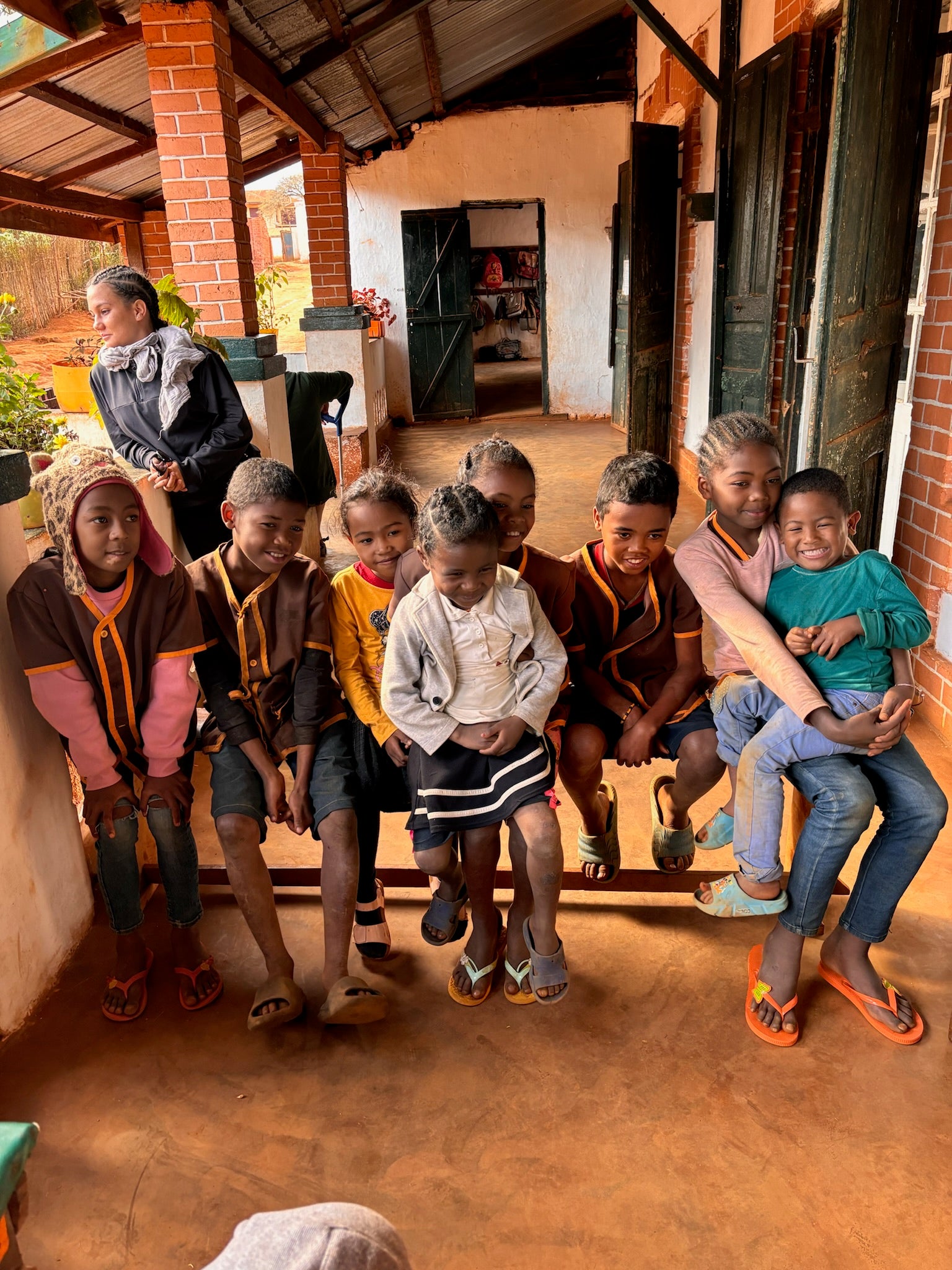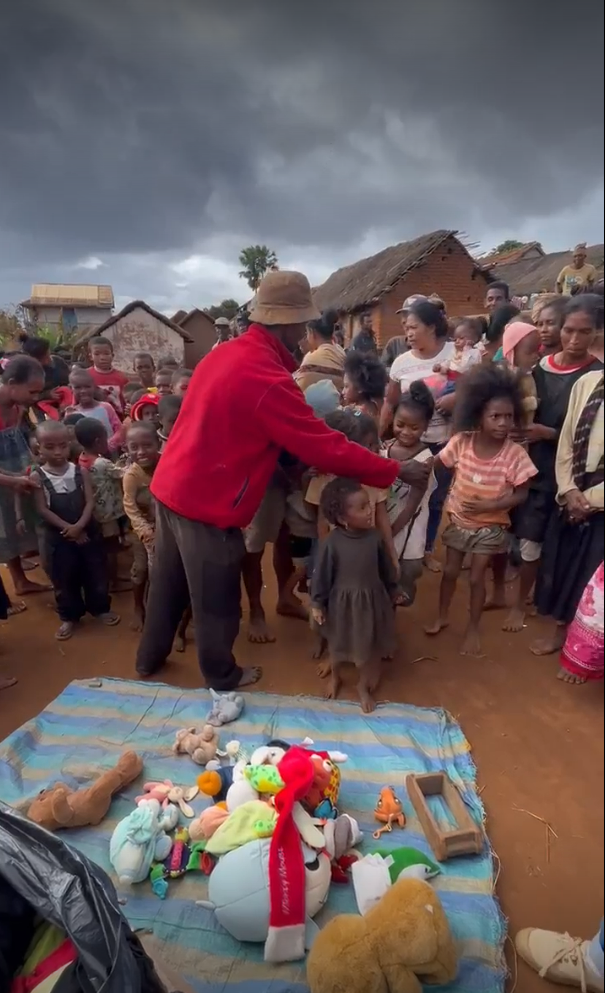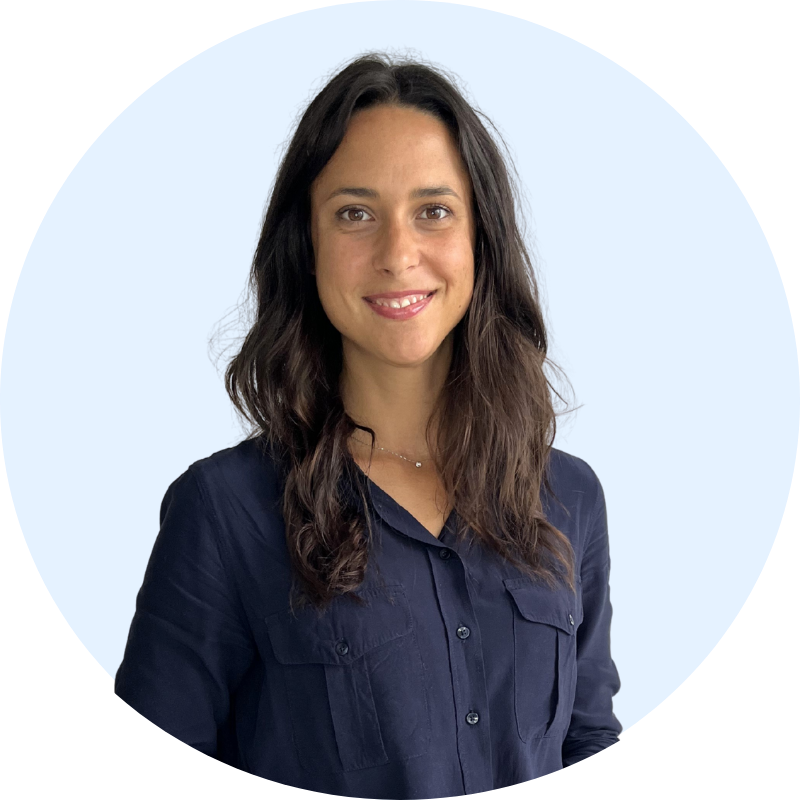
Taking action for drinking water and self-sufficiency at an orphanage in Madagascar
A humanitarian mission in the heart of the village of Imerimandroso
In June 2024, a group from Réunion embarked on a humanitarian mission to Imerimandroso, an isolated and difficult-to-reach village in north-eastern Madagascar. It was there, in this isolated region, that Mireille Lariche, a French-Malagasy woman, transformed her former family home into an orphanage to take in around thirty children, some of whom live there full-time, while others come only during the day to receive schooling. A total of 114 children are sponsored by her association, MONDROSO.
To reach this remote location, the 17 members of the mission (13 students and 4 supervisors) had to fly to Antananarivo, then travel for more than 12 hours by bush taxi. These local minibuses, often overloaded, carry far more than their usual capacity: passengers, luggage, equipment and sometimes even livestock.
Thanks to the joint efforts of the Finamana Run association, which organised the expedition, it was possible to raise the necessary funds to hire four bush taxis, making the journey safer and more bearable. Romain, treasurer of the association and former member of Aquarun, distributor of ORISA® water purifiers, actively contributed to this logistical organisation.
This expedition, led by the Finamanarun association (a contraction of finamana, which means ‘friendship’ in Malagasy, and run for Reunion Island), had two main objectives: to support children's education and to strengthen the site's food self-sufficiency. Two teams were formed: one carried out daily educational and teaching work with the children to support their progress in acquiring skills; the other studied the implementation of an irrigation system, based on a well financed during a previous mission carried out by the association in 2023. The objective: to improve food crops for the orphanage and the village.
‘This type of mission is fundamental: we don't just come to help, we integrate, we learn, we build something that lasts,’ says Romain.
-

Village of Imerimandroso
-

Children from the orphanage
-

Well dug by Finamanarun during the 2023 expedition

A long-term preparation
In the run-up to this mission, preparatory work was carried out for more than six months. This involved not only collecting donations in kind (clothing, books, toys, school supplies), but also gathering construction and health supplies, as well as raising funds to cover logistical needs on site.
Among the most effective actions was bagging at supermarkets. Every weekend, young people took turns at the checkout to offer to bag groceries in exchange for coins.
These actions made it possible to finance the shipment of a shipping container filled with goods, which was sent a month before departure.
Thanks to a clever strategy (placing ‘decoy’ boxes with attractive logos at the front of the container), they managed to get the container to its destination without any losses or thefts, which is quite an achievement in a country where such incidents are common.
Living and working at the orphanage
During their two weeks in Imerimandroso, the mission members lived at the orphanage's pace, sharing the children's daily lives and integrating into the village, which has around 300 inhabitants.
Two groups were formed based on each person's skills and interests.
The first group, which was mainly technical, focused on water and agriculture issues. Their mission was to consider the implementation of a functional irrigation system, based on a well dug during the 2023 expedition. This well, located about 300 metres below the farmland, requires suitable infrastructure to transport the water. In this context, the group contributed to the construction of a processing workshop and to fundraising to finance a motor pump, which is essential for pumping water to the crops.
These lands are home to Moringa, a small tree native to India known for its medicinal properties. As Madagascar is renowned for its production of essential oils, Mireille's goal is to develop a Moringa processing business to generate sustainable income for the orphanage. The volunteers actively participated in the construction of the essential oil workshop, as can be seen in the video below where they are transporting bricks and materials.
The second group, which was mainly educational, was involved in providing academic and educational support to the children: learning the alphabet, educational games, simple calculations, creative workshops, etc. Far from being a simple one-off academic support programme, the approach aimed to encourage the children's independence, confidence and curiosity in a caring and stimulating environment.
This organisation into two complementary areas allowed everyone to fully engage in a useful activity, while discovering another culture, another pace of life and a deep sense of solidarity.
-
Madagascan children living in the Imerimandroso orphanage
-
Participation in the construction of the essential oils workshop.
-
One of the two wells used by the association for the village's needs
The challenge of drinking water: innovation and adaptation
‘We used ORISA® for ultrafiltration to remove bacteria and viruses, then ran the water through Doulton gravity filters to remove taste and odours. The winning combination!’
One of the biggest challenges was access to safe drinking water. The water used by villagers, often drawn from the lake or a well that works one day out of three, is stagnant, muddy and can cause illness, especially for non-immune foreigners. Although residents boil their water as a precaution, this was not enough for the team. A partnership with Aquarun made it possible to install a combined filtration system: an ORISA® water purifier (membrane ultrafiltration) and four Doulton gravity filters (gravity filtration using activated carbon). Romain, whose company donated the equipment, took charge of managing the drinking water. He ensured that each member had 2.5 litres of filtered water per day, combining health safety and taste comfort. The system required rigorous logistics: filling the tanks in the evening, leaving the water to filter overnight, then filling the bottles in the morning. A double filtration system was put in place: first by ORISA® to filter out microbiological contamination, then by Doulton to improve taste and odour. While adapting to the slightly vegetal taste may have been difficult for some at first, almost the entire group eventually adopted this system. This significantly reduced the purchase and use of plastic bottles, an important step both for the environment and for on-site logistics.
A mission that is bearing fruit
All of the mission's objectives were successfully achieved. A fully functional irrigation system was installed, enabling the village's agricultural land to be irrigated efficiently and supporting food self-sufficiency. At the same time, educational support was provided to the children at the orphanage through tailored workshops that reinforced their learning.
Thanks to the installation of ORISA® and Doulton filtration systems, no member of the group suffered from water quality-related problems, ensuring the health and safety of the stay. In addition, the orphanage now benefits from sustainable filtration equipment, left on site for long-term use. Mireille, the president, ensures its rigorous maintenance and has even written a personalised user guide, in addition to the official user manual, to facilitate its daily use.
-

Romain carrying water bottles
-
Children from the village of Imerimandroso
-
Bags of grain, beans and corn in bulk
A lasting legacy for future missions
Now, children and residents have access to safe, clean water without having to rely on purchasing plastic bottles. This is a concrete, sustainable advance that is tailored to local realities.
This mission illustrates the success of a well-thought-out project: meticulous logistical preparation, strong human involvement, co-construction with local actors, and technical solutions that are both simple and effective. The ORISA® purifier has ensured water security for the group while leaving a lasting impact on the ground.
The FINAMANARUN association continues its commitment. Each year, a new group of students returns to Imerimandroso to continue the work that has been started.
This demanding but deeply human project remains a memorable experience for all participants. It is a testament to solidarity, adaptation and resilience in a context where obstacles are numerous, but where the essential becomes possible; together.

Expertise born from humanitarian experience
ORISA® was designed based on the field experience of former humanitarian worker David Monnier, initially co-founder of the company, and developed in response to specifications established with the involvement of major French and international NGOs: Médecins sans Frontières, Croix Rouge Française, Solidarités International, Médecins du Monde, Handicap International, Terres des Hommes Lausanne, Premières Urgences.

“Adapting and making filtration technologies affordable for everyone, to meet the social and environmental challenges of our time.”
Anthony Cailleau, French representative for projects in Colombia, President and co-founder of Fonto de vivo. Contact person for development aid and international cooperation.






